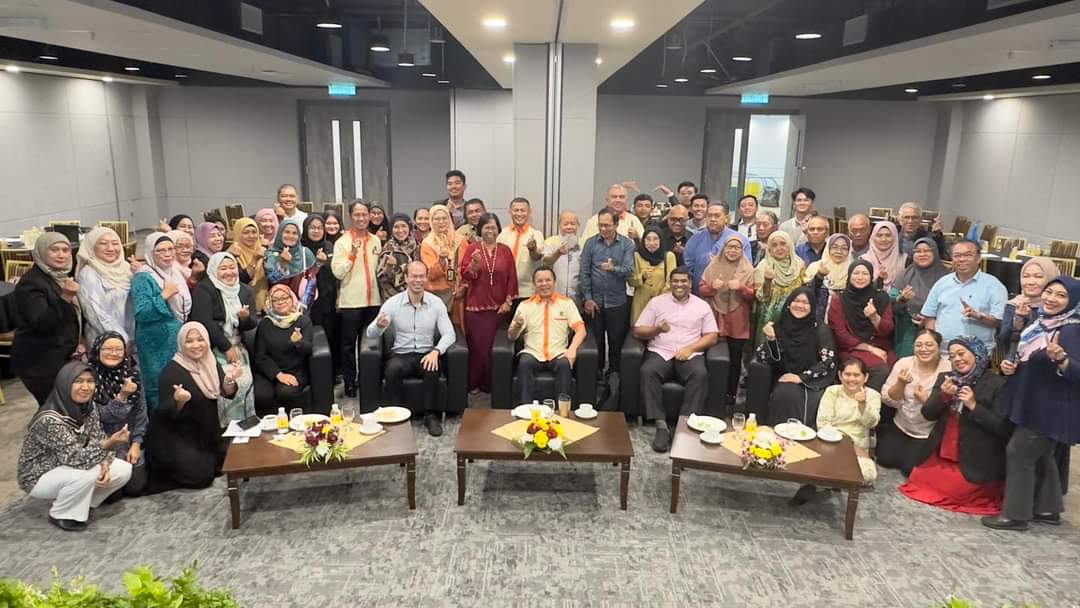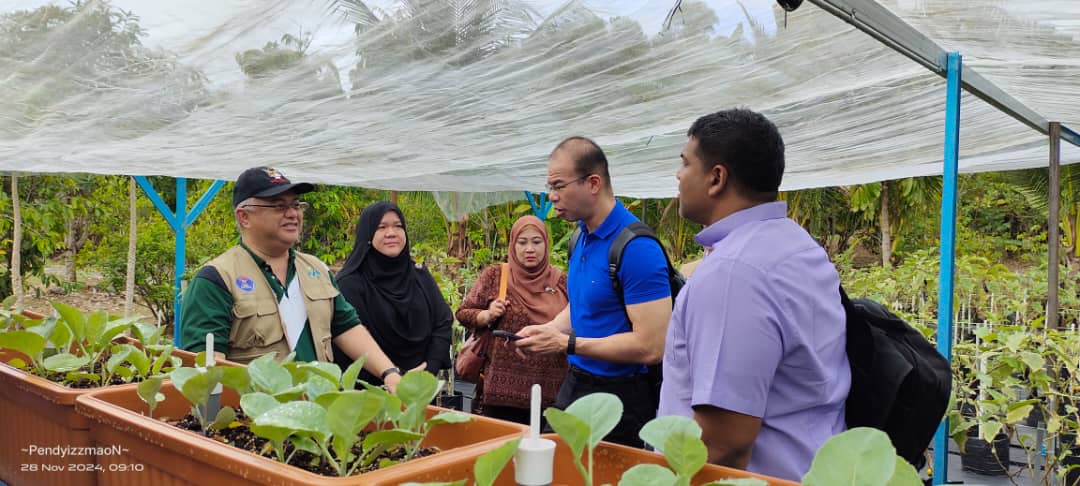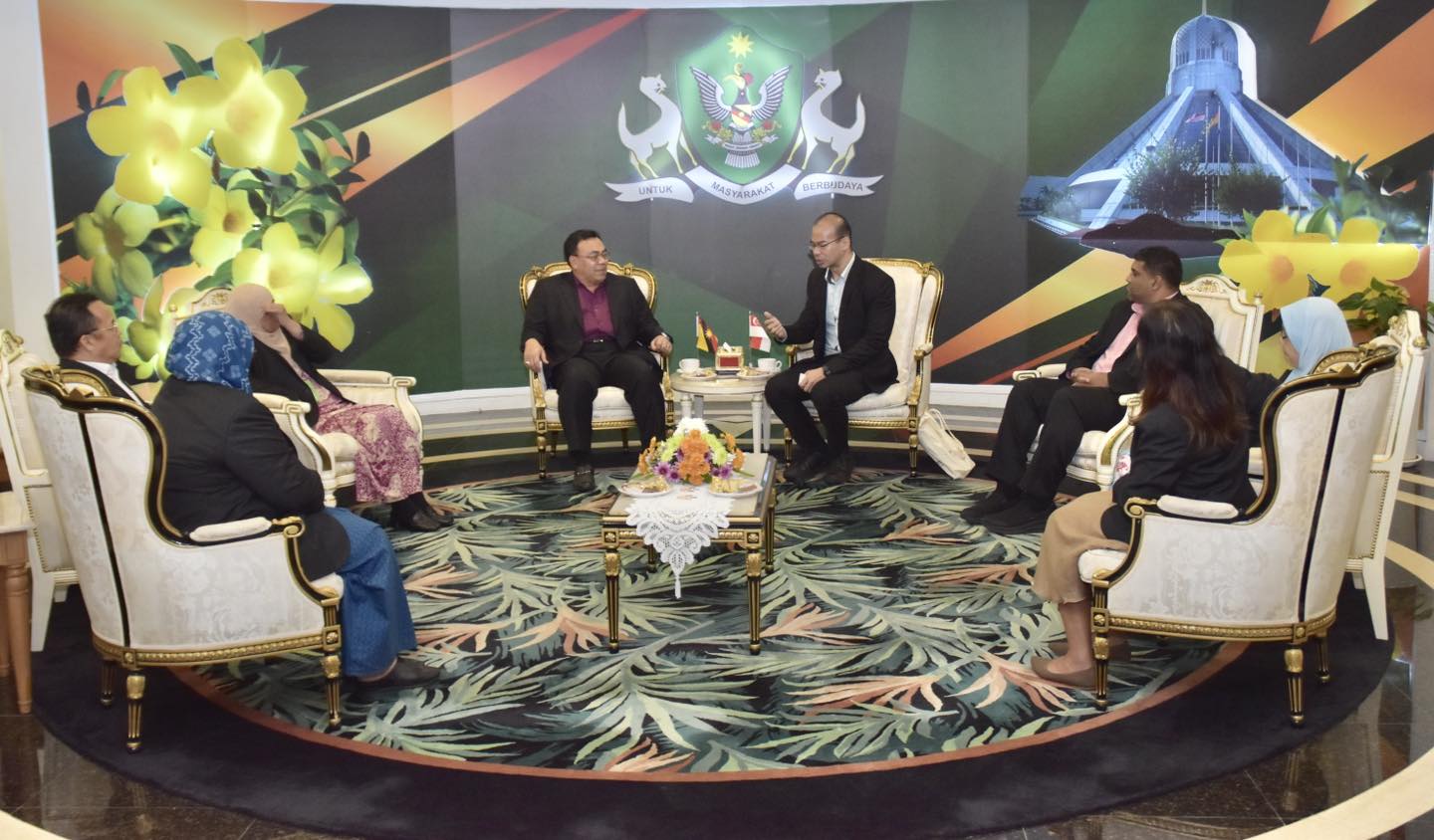
Group photo with participants from various communities following the conclusion of the successful workshop
As part of the 10th Temasek Foundation Leaders in Urban Governance Programme (TFLUGP) 2023 follow-ups, CLC’s director of capability development, Yeon Wen Cong, and Nicholas Thomas from Singapore’s Ministry of Culture, Community and Youth (MCCY), paid a visit to Kuching North in Sarawak, Malaysia. Mr Thomas served as the resource person for the visit.
The TFLUGP is a flagship programme and long-running collaboration between the CLC and Temasek Foundation. Designed to share Singapore’s expertise in developing high-density, liveable cities, it brings together city leaders from across Asia to exchange ideas, foster peer learning, and craft actionable plans to address their unique urban challenges.
This follow-up visit to Kuching North aimed to validate the progress made on action plans formulated during the programme and further support the city’s journey toward sustainability, inclusivity, and dynamic community engagement.
Building Inclusive Frameworks
As part of its mission to make Kuching a “City of Inclusivity”, the Kuching North City Commission (DBKU) has laid a solid foundation for sustainable urban growth by addressing tangible issues like waste management and traffic congestion and intangible ones such as cultural preservation and economic equity.
A key initiative is the Kejiranan Mesra (KJM) programme, which empowers local communities to actively engage in city development.
This programme fosters grassroots involvement, in 51 active neighbourhood committees, by encouraging community activities, facilitating communication between residents and city leaders, and addressing local concerns.
To reinforce and complement Kuching North’s existing efforts, Mr Thomas shared Singapore’s public engagement strategies, such as the International Association for Public Participation (IAP2) framework and the Alliances for Action (AfA) model. These methodologies inspired DBKU leaders and community representatives to explore new ways of scaling their initiatives.

Breakout discussion among members of the communities during the Workshop
A notable outcome was DBKU’s plan to pilot participatory design projects for public spaces, including playgrounds. By involving residents in design and construction, Kuching aims to foster community ownership and pride.
Sustainable Solutions in Action
Sungai Midin Recycling Project
DBKU’s vision of empowering communities is also reflected through its recycling project at Sungai Midin. Here, low-income families repurpose discarded materials into functional furniture, providing a sustainable income source – an excellent example of how environmental and socio-economic challenges may be addressed through creativity and collaboration.
The success of this project underscores the importance of grassroots leadership, with local community chiefs playing a pivotal role in coordinating efforts.
Kuching Family Park Community Farm
Kuching Family Park is yet another shining example of sustainable solutions which both involve and benefit the community. This community farm spans 2.15 acres and involves 36 participants who grow fruits, vegetables, and herbs. The produce, sold at affordable prices, benefits both the farmers and the wider community.

Tuan Haji Yul, Chairperson for KJM Taman Kuching Family Park (left) showcasing the wide variety of crops from the community farming initiative.
DBKU’s collaboration with the Sarawak Agricultural Department and the Malaysian Agricultural Research and Development Institute is paving the way for advanced agricultural techniques, such as greenhouse farming, to boost yields.
Challenges and Opportunities
Kuching North’s journey reflects a commitment to balancing environmental stewardship, socio-economic equity, and cultural preservation. Through initiatives like the KJM programme, recycling projects, and community farming, the city is charting a course toward a sustainable and inclusive future. It also demonstrates how local communities can drive meaningful change.
However, DBKU also faces challenges – requiring enhanced infrastructure, consistent funding, and stronger market connections to scale up projects.
Global collaborations and knowledge exchange

Courtesy call on Mayor of Kuching City North, YB Dato Haji Hilmy Othman
Cross-border collaborations provide opportunities for cities like Kuching North to expand upon their urban development projects.
Citing Singapore’s urban governance as a benchmark, Kuching North’s Mayor YB Dato Haji Hilmy bin Haji Othman highlighted the value of global partnerships and emphasised the need to adapt similar policies, such as in vehicle ownership management, to develop his city’s robust public transport infrastructure.
The mayor also acknowledged the importance of global knowledge exchange, specifically on Singapore’s participatory frameworks and community-driven initiatives, which could serve as a as a foundation to advance Kuching North’s transformation into a vibrant and sustainable city.
Contributed by:
Grace Lau, Senior Assistant Director, Capability Development and International Advisory